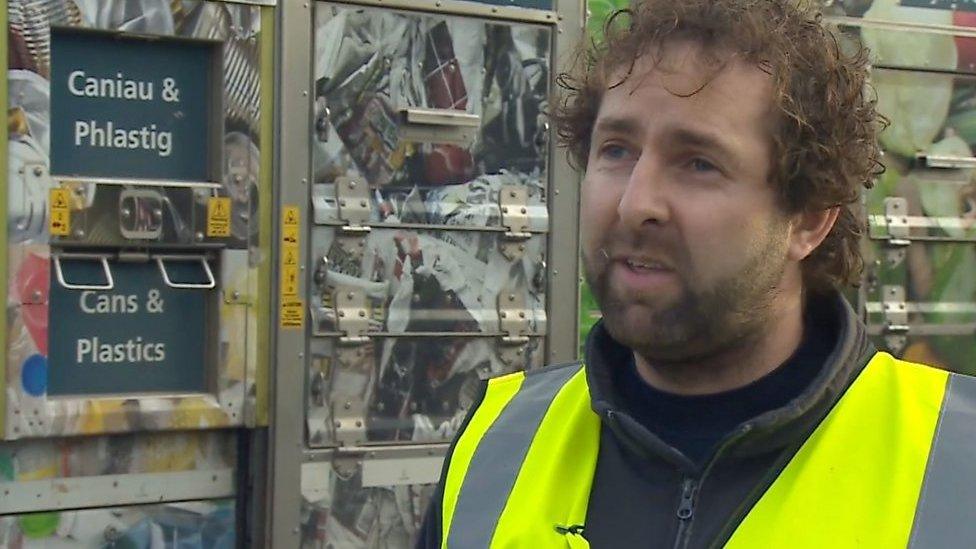Covid: Llangollen International Eisteddfod 'hybrid' hopes
- Published

The eisteddfod usually attracts about 40,000 visitors with performers from around the world
An annual world music festival is "unlikely" to go ahead this year in its traditional format because of the pandemic, organisers have said.
Llangollen International Eisteddfod chair Dr Rhys Davies said restrictions in Wales and around the world are likely to impact staging the event.
The committee is now working on a "hybrid" eisteddfod, combining virtual and small-scale live performances.
Last July's event was cancelled for the first time in its history due to Covid.
The eisteddfod attracts about 40,000 visitors from around the world to the Denbighshire town every year.
But Dr Davies has confirmed it was "unlikely to happen".
"I don't see the 2m rule, which is law in Wales, being withdrawn before the summer and even if we're given permission to hold a large event, it doesn't give us time to set up a full normal eisteddfod," he said.
"It needs at least six months to set it up and we have to be realistic... it is unlikely."

Manic Street Preachers closed the event in 2017
Organisers hope they can combine live stage performances and competitions online.
"We will definitely have a digital one. We would like to have a hybrid one which is half digital and half live to a smaller audience in Llangollen," said Dr Davies.
Next year the eisteddfod celebrates 75 years in Llangollen however Dr Davies previously admitted it would have faced an 'uncertain future' without financial help from the Welsh Government after the 2020 event was cancelled.

Luciano Pavarotti said performing with a choir at Llangollen inspired him to become a professional singer
Organisers are looking at examples of festivals adapting in Wales last year, including the Urdd Youth Eisteddfod, Hay Festival and Royal Welsh Show.
However it means many choirs from all over Wales will not be able to visit and Eilir Owen Griffiths, the conductor of Cardiff-based choir CF1 and a former artistic director of the eisteddfod, said that was a "big shame".
"Without a shadow of a doubt, you definitely lose the personal touch by not being there," he said.
"It is a shame but it's important that this decision was done early."
Related topics
- Published18 December 2020

- Published6 July 2020

- Published9 July 2019
